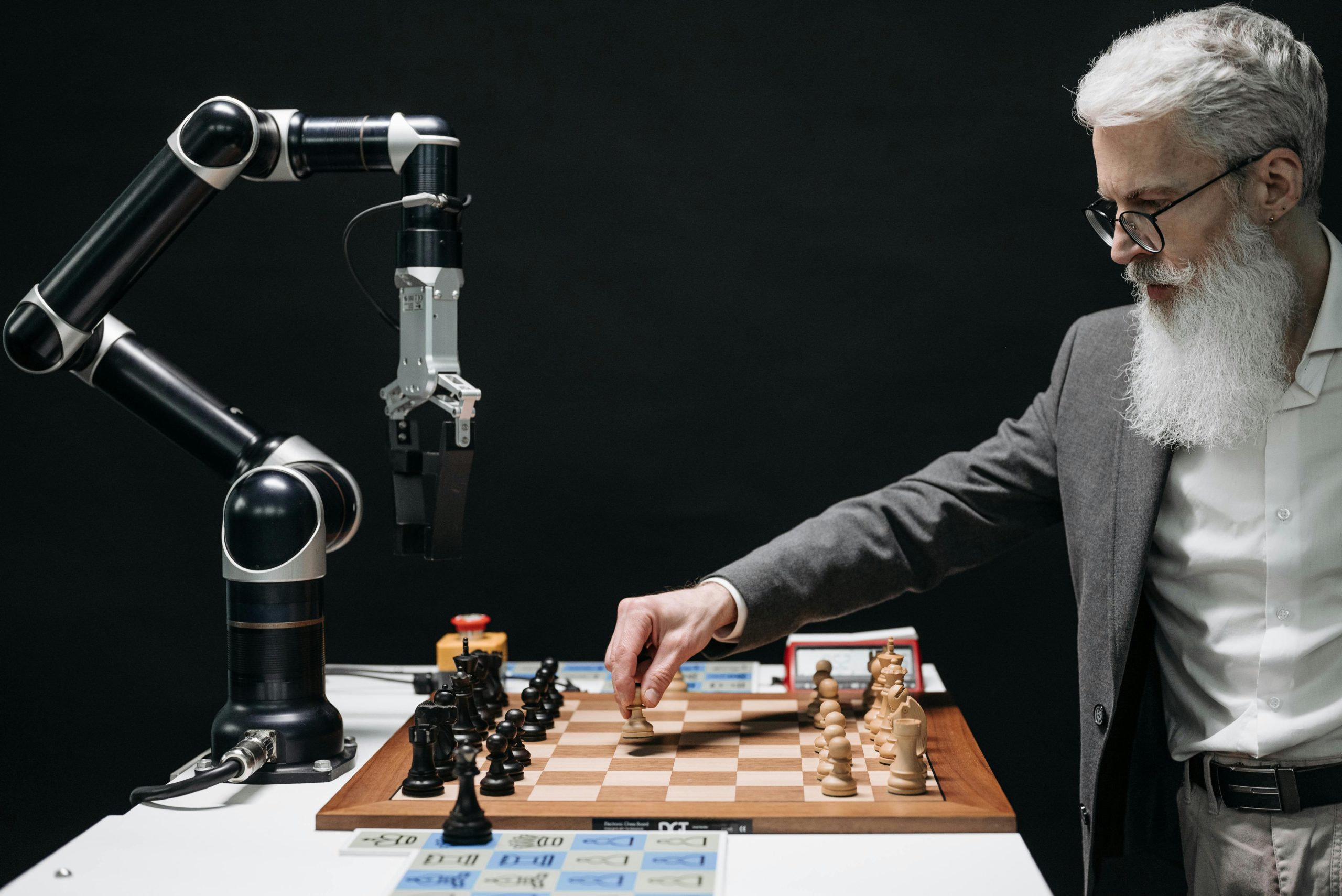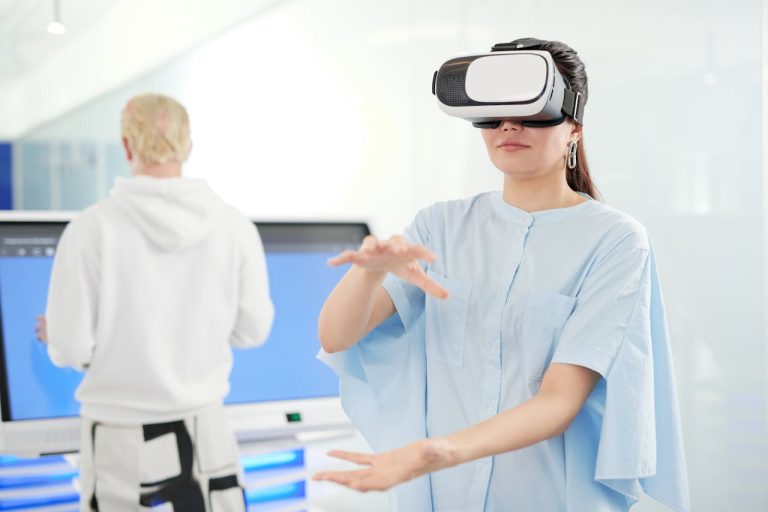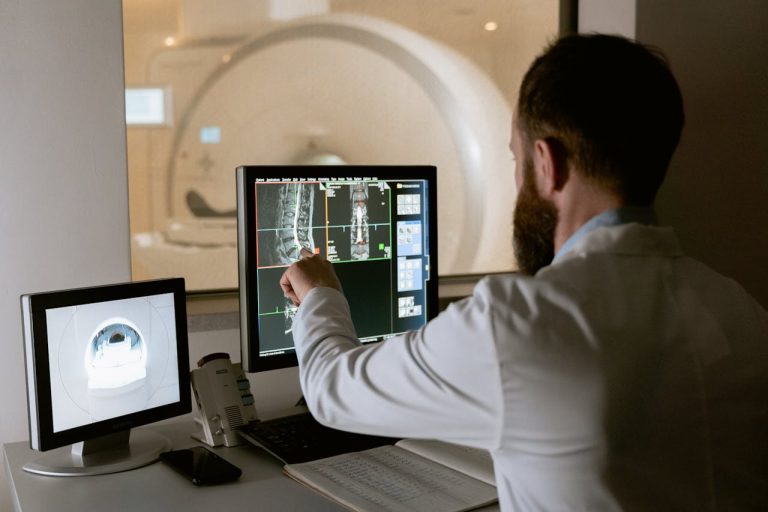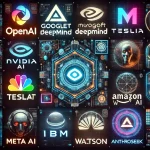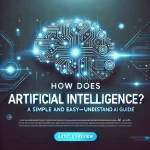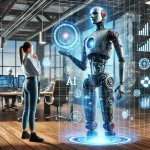AI Disruptive Innovations Are Changing the World
AI disruptive innovations are reshaping industries and revolutionizing how we live. Artificial intelligence (AI) is evolving at an unprecedented pace—from self-driving cars and personalized healthcare to automated financial analysis and creative content generation. According to a 2024 McKinsey report, over 70% of global businesses have integrated AI into their operations, and by 2035, AI is projected to contribute over $15 trillion to the global economy.
Yet, with these groundbreaking changes come significant challenges: job displacement, ethical dilemmas, data privacy risks, and questions about accountability. The rapid adoption of AI has sparked debates about whether AI could eventually go beyond being a mere tool and fundamentally transform society. In this article, we delve into 5 major AI disruptive innovations that will shape our future over the next decade, examine real-world cases, and explore how these technologies might both empower and challenge us.
1. Artificial General Intelligence (AGI): From Task-Specific Tools to True Intelligence

1.1 The Evolution from Narrow AI to AGI
Currently, most AI systems are examples of Narrow AI—they excel at specific tasks like voice recognition, image generation, or natural language processing. However, the long-sought goal of Artificial General Intelligence (AGI) is to create systems that possess the ability to learn and reason across a wide range of domains, much like human beings. AGI would be capable of adapting to new challenges, understanding context, and even generating novel solutions independently.
1.2 Potential Impact of AGI
- Scientific Breakthroughs: AGI could accelerate research by autonomously identifying patterns in complex datasets, leading to new discoveries in fields such as physics, biology, and mathematics.
- Business Transformation: Companies might begin to rely on AI not just as a tool, but as an integral part of decision-making, with AI “executives” contributing to strategic planning and innovation.
- Ethical and Regulatory Questions: With AGI comes the difficult question of control—should AGI have any legal rights? How do we ensure that AGI remains aligned with human values?
1.3 Real-World Cases
- DeepMind’s AlphaGo: Initially, AlphaGo surpassed human champions in the game of Go. Its successor evolved to learn and improve without heavy human intervention, hinting at the potential for AGI.
- OpenAI’s Ongoing Research: OpenAI is actively working on models that exhibit greater generalization, aiming to build systems that can think across different domains, although true AGI remains a future prospect.
2. AI + Quantum Computing: Exponential Growth in Computational Power
2.1 Breaking Through Computational Barriers
Traditional computers face inherent limitations when it comes to processing vast amounts of data required for advanced AI tasks. Quantum computing, on the other hand, harnesses quantum phenomena to perform calculations at speeds unimaginable with classical hardware. The integration of AI with quantum computing could dramatically accelerate the pace of innovation.
2.2 Future Impact on Various Industries
- Healthcare and Pharmaceuticals: With quantum AI, complex molecular simulations could be performed in seconds, speeding up the discovery of new drugs and personalized treatment plans.
- Financial Markets: Quantum-enhanced AI could optimize complex financial models, improving the accuracy of market predictions and risk assessments.
- Cybersecurity: The immense processing power could potentially break current encryption methods, forcing a complete overhaul of cybersecurity protocols.
2.3 Real-World Cases
- Google’s Sycamore Processor: In a landmark experiment, Google’s Sycamore achieved a task in 200 seconds that would take a conventional supercomputer 10,000 years.
- IBM’s Quantum System One: IBM is developing commercial quantum computers that aim to revolutionize industries by significantly boosting AI training capabilities.
3. Brain-Computer Interfaces (BCI): The Dawn of Human-AI Integration
3.1 Merging Minds with Machines
Brain-computer interfaces (BCI) enable direct communication between the human brain and external devices. This emerging technology, powered by AI, promises to blur the lines between biological and digital intelligence. With BCI, it may soon be possible to control computers, prosthetic limbs, or even other machines using only neural signals.
3.2 Transformative Potential
- Medical Advancements: For patients with paralysis or neurodegenerative diseases, AI-driven BCI devices could restore mobility and communication, significantly improving quality of life.
- Cognitive Enhancement: In the future, BCI might enable direct knowledge transfer, enhancing learning and memory by transmitting data directly to the brain.
- Privacy and Ethics: As BCI technology becomes more sophisticated, concerns about mental privacy and data security will intensify—what happens if your thoughts can be read or manipulated?
3.3 Real-World Cases
- Neuralink by Elon Musk: Neuralink has demonstrated prototypes where monkeys control computers with their minds, and the company aims to start human trials by 2025.
- Facebook’s BCI Projects: Research at Facebook Reality Labs has shown promising results in enabling brain-controlled typing, paving the way for future applications in communication and accessibility.
4. AI-Generated Content (AIGC): Revolutionizing the Creative Industries
4.1 The Rise of AI-Generated Creativity
AI-generated content (AIGC) is rapidly gaining traction in creative fields such as film, music, literature, and video games. Unlike traditional content creation, AIGC leverages machine learning to produce high-quality outputs with minimal human intervention, opening up new avenues for innovation.
4.2 Transformative Impact on Entertainment and Media
- Film and Television: AI can automate scriptwriting, generate special effects, and even direct short films, significantly reducing production costs and timelines.
- Music: AI algorithms can compose music tailored to individual preferences, enabling the creation of personalized soundtracks for films, ads, or personal use.
- Gaming: AI is already being used to generate dynamic game worlds, creating experiences that are unique to each player.
4.3 Real-World Cases
- AIVA (Artificial Intelligence Virtual Artist): AIVA is an AI composer used in creating soundtracks for films and advertisements. Its work has been well-received for its orchestral quality and creativity.
- Midjourney and Runway AI: These platforms have produced high-quality visual art and short films that rival those created by human artists, showcasing the potential of AIGC to disrupt traditional creative industries.
5. AI in Personalized Healthcare: A Revolution in Medicine
5.1 AI’s Role in Transforming Healthcare
AI’s integration with healthcare is set to redefine medical diagnosis and treatment. By combining AI with genomics, wearable devices, and real-time data analysis, personalized healthcare will become a reality.
5.2 Impact on Patient Care and Medical Research
- Disease Prediction: AI can analyze genetic data and lifestyle patterns to predict the likelihood of diseases such as cancer or diabetes, enabling early intervention.
- Automated Diagnosis: AI-powered diagnostic tools have shown superior accuracy in identifying conditions like diabetic retinopathy, often surpassing human doctors.
- Personalized Treatment: By tailoring treatment plans to individual patients, AI can significantly improve outcomes and reduce healthcare costs.
5.3 Real-World Cases
- DeepMind’s AlphaFold: This AI system has revolutionized the field of protein folding, providing critical insights for drug development and enabling breakthroughs in biomedical research.
- Google Health’s AI Diagnostic Tool: Google Health’s AI has been proven to detect diabetic retinopathy with an accuracy rate exceeding that of human experts, demonstrating the potential for AI to improve diagnostic precision.
AI Will Enhance, Not Replace, Human Capabilities
Despite the rapid progress of AI, I believe that AI will not completely replace human ingenuity and judgment—at least in the short term. AI is a tool designed to enhance human potential rather than replace it. For instance, in the creative industries, while AI can generate art or music, it lacks the deep emotional resonance and cultural context that only human creators can provide. This perspective extends to many fields: AI can optimize processes, provide valuable insights, and take over repetitive tasks, but the human touch remains irreplaceable.
I assert that AI’s disruptive innovations are destined to coexist with human creativity and expertise. As we develop and regulate AI responsibly, we must focus on integrating AI as an enhancer of our capabilities, not as a substitute for our unique human qualities.
Conclusion: The Limitless Potential of AI in the Next Decade
The next 10 years will witness groundbreaking changes driven by AI disruptive innovations. From the advent of AGI and quantum computing to brain-computer interfaces, AI-generated content, and personalized healthcare, these technologies will reshape our world in profound ways. However, with these innovations come ethical challenges, privacy concerns, and social implications that must be addressed through robust regulation and responsible innovation.
While the possibility of AI completely ruling the world remains remote in the short term, its impact will be transformative—redefining industries, accelerating scientific discoveries, and improving human life. It is up to us to harness these disruptive innovations responsibly and ensure that AI remains a powerful ally in our quest for progress.
What do you think will be the biggest AI disruption in the next decade? If you found this article insightful, share it with your friends and colleagues! We’d love to hear your thoughts—do you believe AI will revolutionize our world or bring significant challenges? Join the conversation in the comments below!
